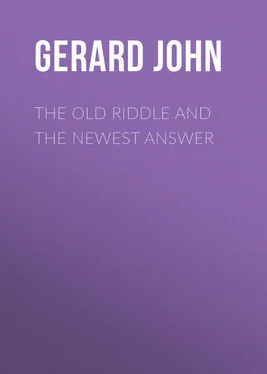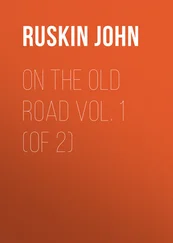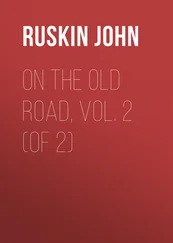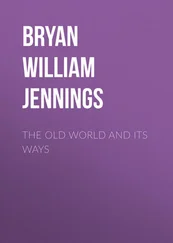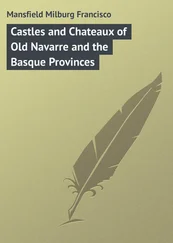John Gerard - The Old Riddle and the Newest Answer
Здесь есть возможность читать онлайн «John Gerard - The Old Riddle and the Newest Answer» — ознакомительный отрывок электронной книги совершенно бесплатно, а после прочтения отрывка купить полную версию. В некоторых случаях можно слушать аудио, скачать через торрент в формате fb2 и присутствует краткое содержание. Жанр: foreign_religion, foreign_antique, foreign_prose, на английском языке. Описание произведения, (предисловие) а так же отзывы посетителей доступны на портале библиотеки ЛибКат.
- Название:The Old Riddle and the Newest Answer
- Автор:
- Жанр:
- Год:неизвестен
- ISBN:нет данных
- Рейтинг книги:4 / 5. Голосов: 1
-
Избранное:Добавить в избранное
- Отзывы:
-
Ваша оценка:
- 80
- 1
- 2
- 3
- 4
- 5
The Old Riddle and the Newest Answer: краткое содержание, описание и аннотация
Предлагаем к чтению аннотацию, описание, краткое содержание или предисловие (зависит от того, что написал сам автор книги «The Old Riddle and the Newest Answer»). Если вы не нашли необходимую информацию о книге — напишите в комментариях, мы постараемся отыскать её.
The Old Riddle and the Newest Answer — читать онлайн ознакомительный отрывок
Ниже представлен текст книги, разбитый по страницам. Система сохранения места последней прочитанной страницы, позволяет с удобством читать онлайн бесплатно книгу «The Old Riddle and the Newest Answer», без необходимости каждый раз заново искать на чём Вы остановились. Поставьте закладку, и сможете в любой момент перейти на страницу, на которой закончили чтение.
Интервал:
Закладка:
It is the use of the word "law" as if it denoted a thing – as if a "law of nature," as science understands it, were a being endowed with certain powers, in virtue of which the phenomena expressed by that law are brought about… All I wish to remark is that such a conception of the nature of "laws" has nothing to do with modern science… A law of nature, in the scientific sense, is the product of a mental operation upon the facts of nature which come under our observation, and has no more existence outside the mind than colour has. The law of gravitation is a statement of the manner in which experience shows that bodies, which are free to move, do, in fact, move towards one another… The tenacity of the wonderful fallacy that the laws of nature are agents, instead of being, as they really are, a mere record of experience, upon which we base our interpretations of that which does happen, and our anticipation of that which will happen, is an interesting psychological fact: and would be unintelligible if the tendency of the human mind towards realism were less strong.
A law, accordingly, "is not a cause but a fact," 26 26 Newman, Grammar of Assent , p. 72. A "Law of Nature," as has already been said, is simply a statement of what de facto has always been found to occur under certain conditions, and may consequently be expected again. It is obvious however that such expectation is implicitly based on the existence of some cause capable of ensuring the result.
and we must learn laws from facts, not facts from laws. It is indeed evident on a moment's thought, that to speak of the Law of Evolution as causing things to be evolved, is like saying that the law of growth makes things grow. Till we know what happens, there is nothing of which Science can take account.
True scientific teaching, I cannot too often repeat [says Professor Tait] 27 27 "The Teaching of Natural Philosophy," Contemporary Review , Jan., 1878.
requires that the facts, and their necessary consequences alone, should be stated, as simply as possible.
In like manner Professor Huxley, 28 28 Lay Sermons , p. 83.
undertaking to vindicate full scientific value for his own favourite Biology, does so by pointing out that biological methods are similar to those of every other branch of Science, since they begin with the observation of facts, and from this proceed to various applications of the knowledge so acquired. And Professor Haeckel himself tells us regarding his own mode of procedure: 29 29 Riddle of the Universe , p. 6.
The means and methods we have chosen for attaining the solution of the great enigma do not differ, on the whole, from those of all purely scientific investigation: firstly, experience; secondly, inference.
Therefore, although the phrases we have already heard from him, are found when scrutinized to be only phrases, which explain nothing, it may be supposed that he elsewhere produces such proofs of his doctrine as will place it on a scientific basis. For these we will now seek.
VI
"THE LAW OF SUBSTANCE"
WE have just been told by Professor Haeckel, that the means and methods which he has chosen for the establishment of his philosophy are, on the whole, identical with those employed in all purely scientific investigation, namely, first experience, and secondly inference.
But here a grave difficulty at once presents itself. How, either by experience or by inference, can we learn anything about the commencements of the universe, as to which we have heard so much? How the first bodies, whether organic or inorganic, actually arose, neither philosophy nor science can definitely say, for the latter was not there to see, and the former has no facts on which to argue. 30 30 See Wasmann "Gedanken zur Entwicklungslehre," Stimmen aus Maria-Laach , vol. 63, p. 298.
But if neither by observation, nor by clear inference, can the account that has been given be substantiated, that account cannot pretend to be scientific, for it rests not upon knowledge but upon speculation, – and as Professor Tait warns us, 31 31 Contemporary Review , ut sup., p. 301.
"That of which there is no knowledge is not yet part of Science."
This plain consideration seems to account for a fact which is undoubtedly highly significant. Professor Huxley had certainly no prejudices against evolutionary systems, could they but be satisfactorily established. He knew all that Professor Haeckel has urged on behalf of his own theory, and showed how much he was in sympathy with it by naming after his friend the ill-starred Bathybius Haeckelii , the deep-sea slime which was at first supposed to bridge the gulf between the organic and the inorganic worlds, and to be living stuff in process of spontaneous manufacture. Nothing, in fact, as he himself admitted, in his controversy with Dr. Bastian, could have suited him better than a demonstration that Nature possesses all the powers necessary for her own processes, and that the explanation of all is within the scope of Science. But, at the same time, he reverenced scientific truth beyond anything else, and he was keenly sensible of the danger attending the use of hypothetical explanations, leading to conclusions which cannot be experimentally tested, which danger he carefully shunned. 32 32 Professor Weldon, F.R.S., in the Dictionary of National Biography .
Accordingly, not only did he never lend his countenance to what Professor Haeckel represents as the inevitable conclusions of Science, but he even plainly intimated that those who advanced such views were going much farther than Science warrants. The doctrine of Evolution, he declared, 33 33 Collected Essays , v. 41.
is not only attacked on false grounds by its enemies, but is made by some of its friends to cover so much which is disputable, as to force him in self-defence to make his own position clear in its regard. And the first point of his explanation is to repudiate the idea that we have any such knowledge as Professor Haeckel assumes. "I have nothing to say," he writes, "to any 'Philosophy of Evolution.'"
Being thus necessarily destitute of support either directly from observation or by inference from observed facts, it would seem that only in one way can Professor Haeckel's system of cosmogony, or world-production, obtain any support from Science. If amongst the operations now in progress in the universe, is to be found evidence of an exhaustless and self-renewing energy, a mainspring capable of keeping the machine going everlastingly, then undoubtedly there will be an explanation forthcoming, which, whatever difficulties may still remain on other grounds, will at least furnish a complete mechanical account of things within the ken of Science. May we not suppose that this is what is claimed as being supplied by the "Law of Substance," which is represented as the cornerstone of the whole edifice, the supreme triumph of scientific discovery, and, in fine, "the universal law of evolution"? Let us see how far such a notion can be styled scientific.
As has been shown, a "Law" is nothing but a statement that a certain kind of fact is found to occur in certain circumstances. Professor Haeckel has told us that the "Law of Substance" is a blend of two such statements, namely, "the Law of the persistency or indestructibility of matter," which signifies that in no instance within our knowledge is any particle of matter destroyed, and "the Law of the persistence of force, or conservation of energy," which signifies that the sum of force, at work in the world, and producing all phenomena, is similarly found to be unalterable. 34 34 Riddle of the Universe , p. 75.
It must here first be observed that the term "Conservation of Energy," is more correct and intelligible than "Conservation of Force"; by "Energy" being understood the power of doing "work," that is to say, of overcoming resistance. 35 35 Professor Garnett in the Encyclopaedia Britannica . By "Force" is understood "any cause which tends to alter a body's natural state of rest, or of uniform motion in a straight line." Of the nature of such causes science professes to know very little, and as Clerk-Maxwell, who knew as much as most men, sang apropos of a lecture of Professor Tait's: … Tait writes in lucid symbols clear one small equation; And Force becomes of Energy a mere space-variation.
Интервал:
Закладка:
Похожие книги на «The Old Riddle and the Newest Answer»
Представляем Вашему вниманию похожие книги на «The Old Riddle and the Newest Answer» списком для выбора. Мы отобрали схожую по названию и смыслу литературу в надежде предоставить читателям больше вариантов отыскать новые, интересные, ещё непрочитанные произведения.
Обсуждение, отзывы о книге «The Old Riddle and the Newest Answer» и просто собственные мнения читателей. Оставьте ваши комментарии, напишите, что Вы думаете о произведении, его смысле или главных героях. Укажите что конкретно понравилось, а что нет, и почему Вы так считаете.
